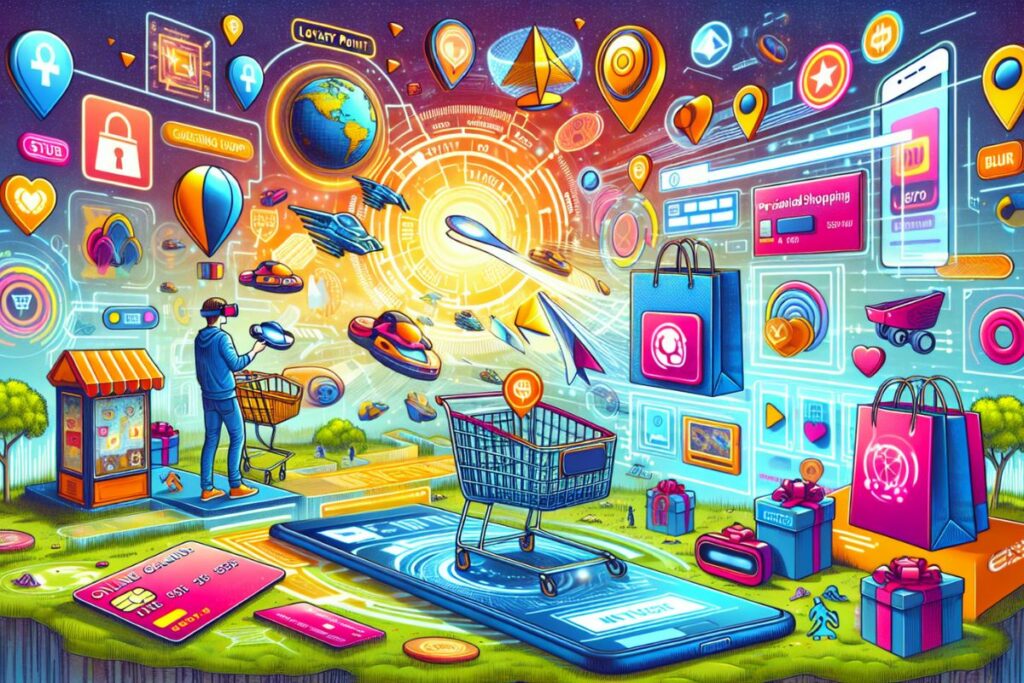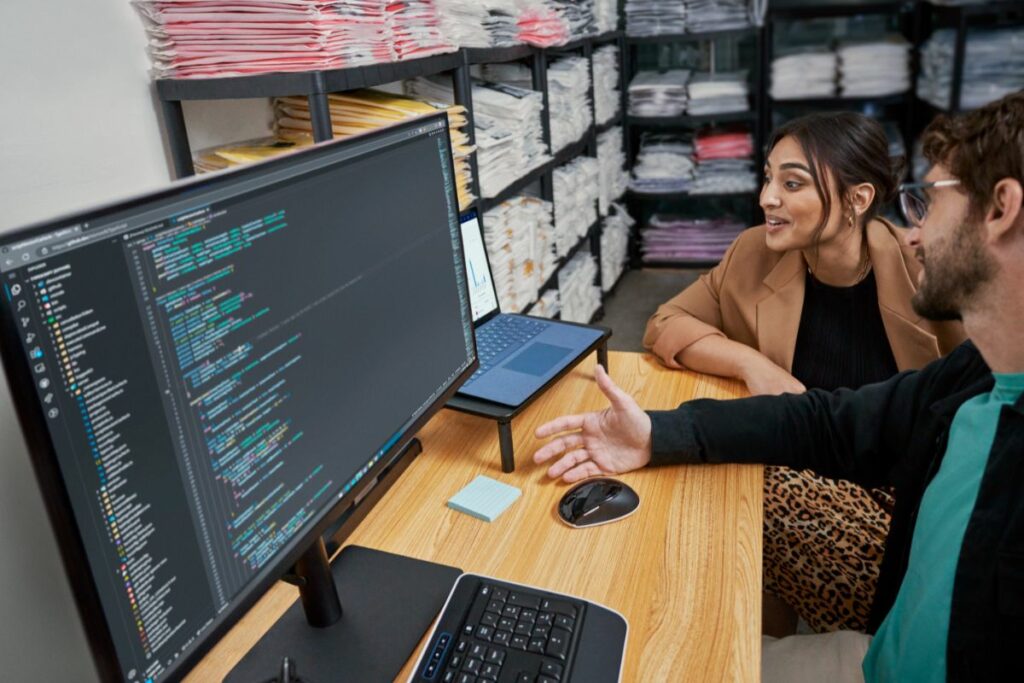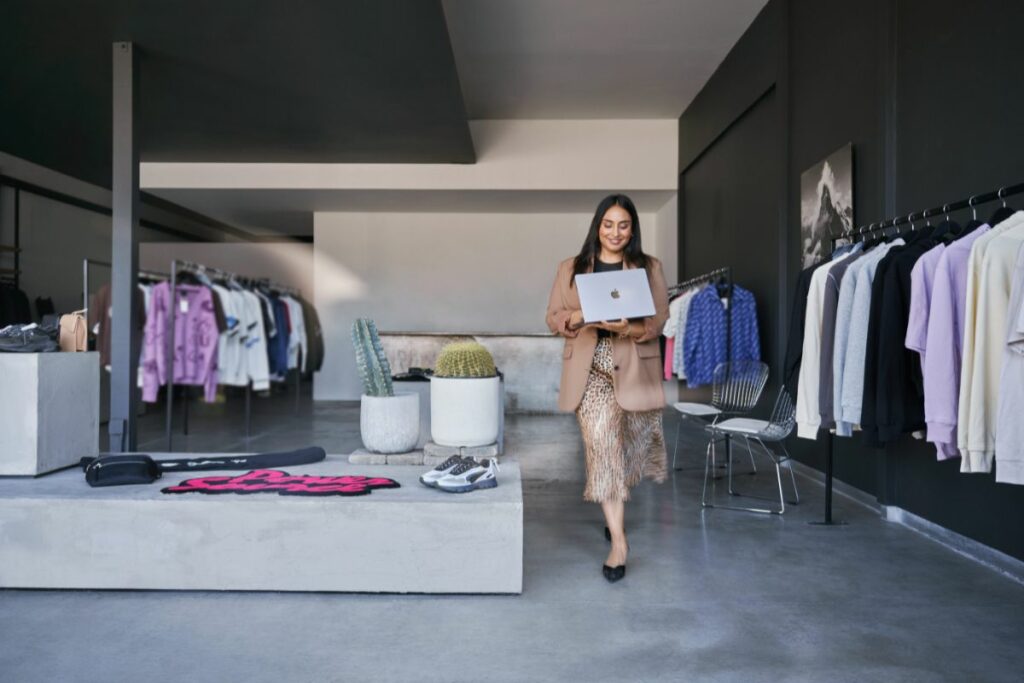“Capacity and consistency”, “speed and efficiency”, “accuracy”, and “predictability” were among the responses retailers gave during an event last month when asked which words best summarise their focus areas as they develop online delivery in the year ahead.
It was a final talking point following a Retail Gazette roundtable on how the industry fared during the 2021 peak trading period, with the responses highlighting how retailers are keen to optimise from first mile to last mile as eCommerce grows as a percentage of retail sales.
Representatives from retailers, including Asos, Charles Clinkard, Costa Coffee, Dunelm, H&M, L’Oreal, Marks & Spencer, Nespresso, River Island, Sainsbury’s, SportPursuit, and WHSmith joined the roundtable, co-hosted by Amazon Shipping on 20 January.
During an in-depth debate, it was agreed peak period 2021 had been a success for retail, but ongoing macroeconomic challenges, such as global supply chain hold-ups and competition for staff, continue to provide obstacles for the industry. Indeed, the need to be flexible and adapt to disruption is now required as a matter of course, it would seem, with one retailer saying “complexity” was the main characteristic of peak trading.
Retailers around the table admitted they were not focused on shiny new objects such as drones and robots in terms of future delivery innovation. Instead, it was clear retailers are honing in on the fundamentals of delivery – increasing speed, enhancing transparency, and keeping costs for customers to a minimum – because that it what they understand consumers’ priorities are in today’s market.
Fundamentals not bells and whistles
Comments at the roundtable tallied with findings from a Retail Gazette and Amazon Shipping report looking at retail’s peak performance, which surveyed 124 retailers. Only 10% of retailers surveyed said drone delivery would make a good fit for their customer proposition, the same percentage as those eyeing on-land robot delivery.
The most popular choices – the innovations retailers truly believe will resonate with consumers – were fulfilling more online orders from store stock, and expanding locker delivery and pick-up options.
And one roundtabler said customers “are not particularly bothered about innovation per se” – how a delivery impacts them is what matters. “A lot don’t want to pay for delivery,” he added, explaining cost tops the list of consumer concerns when it comes to eCommerce delivery.
Another retailer suggested the “bells and whistles” of online delivery can come once the simpler elements of the process have been solved. He listed delivery accuracy and ensuring on-time fulfilment as the basics of successful online fulfilment, adding that the key focus for his business is to get stock closer to the customer before they order online by using stores as fulfilment hubs.
Although there were several common approaches cited, each retailer views the sector in their own way.
Jamie Wadhams, chief operations officer at SportPursuit, told the roundtable: “Getting forecasting right is central to online delivery success – clearly challenging given the macro factors in the marketplace.
“Focusing on the key logistics principles in 2021 gave the best return, but effective automation is going to be key going forwards, given ongoing resource constraints.”
Speed options, sustainability but most of all reliability
The Retail Gazette-Amazon Shipping report suggests 87% of retailers said next-day or two- to three-day delivery were the most popular options during peak, with the former just edging it. Indeed, 93% of retailers said demand for next-day delivery had either increased or stayed the same in peak period 2021, compared to the year before.
The research also shows retailers are looking for reliability from their delivery service providers above all else, and with 68% of retailers saying their partners generally met customer delivery time promises in the final quarter of 2021 there is clearly significant room for improvement in this area.
Those shopping online also want regular updates on order progress, according to the report.
These findings resonated with many of the retailers attending the roundtable, with one acknowledging “the key now is to be completely transparent” with consumers who have made an online order, while another said “speed is not trumped by certainty” in terms of what consumers find most important about the delivery process.
While the ‘perfect delivery’ and preference for speed vary across different types of retailer and product category, the commonality is this need for certainty/reliability in delivery.
It is also suggested in the research that consumers are increasingly requesting more sustainable delivery options than before the pandemic.
On that subject, one retailer said individual businesses “need to be true to their values” in terms of offering greener delivery options. He explained that customers are not necessarily willing to pay for sustainable delivery, so retailers must do all they can to lead the agenda and provide an array of environmentally-friendly choices.
Another agreed that retailers “need to take the consumer on a journey” in terms of educating shoppers about the practicalities of sustainable delivery options. It appears sustainability matters less in practice or at the point of purchase, according to those at the roundtable – and it differs depending on demographic, with retailers targeting younger consumers saying their customers are more likely to offer greener delivery.
Lessons learned
Much of what the roundtablers discussed suggested retailers’ capability to deal with online peaks had improved significantly compared to before the pandemic.
Indeed, Andrew Mann, managing partner of the NorthBailey consultancy, and former Clubcard director at Tesco, told the roundtable: “The crisis of 2020 has not been wasted.
“Retail boards often found themselves drowning in a list of priorities, but in the pandemic they were able to shorten their priority lists and move quickly as a result. Listening to the consumer, simplifying processes and operating with fewer priorities are pandemic lessons that should have longevity.”
He added that the most important aspects retailers have learned from a delivery perspective are the need for speed and the importance of keeping a promise. That’s what customers want, he explained.
The shape of peak is ever-changing, with Black Friday continuing to bring forward consumer spending from its traditional December spike. Retail Gazette’s research found 76% of retailers believe peak is getting earlier and earlier each year – and that is partly due to the industry managing demand levels by stretching out seasonal marketing activity throughout November and, in some cases, as early as October.
Luke Batten, senior enterprise launch manager at Amazon Shipping, who joined the roundtable, said: “After what seems like a positive peak period for the industry, with official figures showing online retail continues to rise compared to before the pandemic, it’s encouraging to see retailers are focused on the essential components of good delivery.
“Customers want speed, accuracy, and retailers to keep their promise when it comes to receiving their online orders – there is also a growing desire for more sustainable delivery options.”
He added: “Delivery challenges appear similar no matter what sector of the retail industry a business finds itself in. What also seems clear is customers continue to compare retailers on their delivery proposition, which emphasises why the industry needs to continue to find ways to optimise and improve their delivery operations and not rest on its laurels after a successful final quarter of 2021.”
Click here to sign up to Retail Gazette‘s free daily email newsletter


















